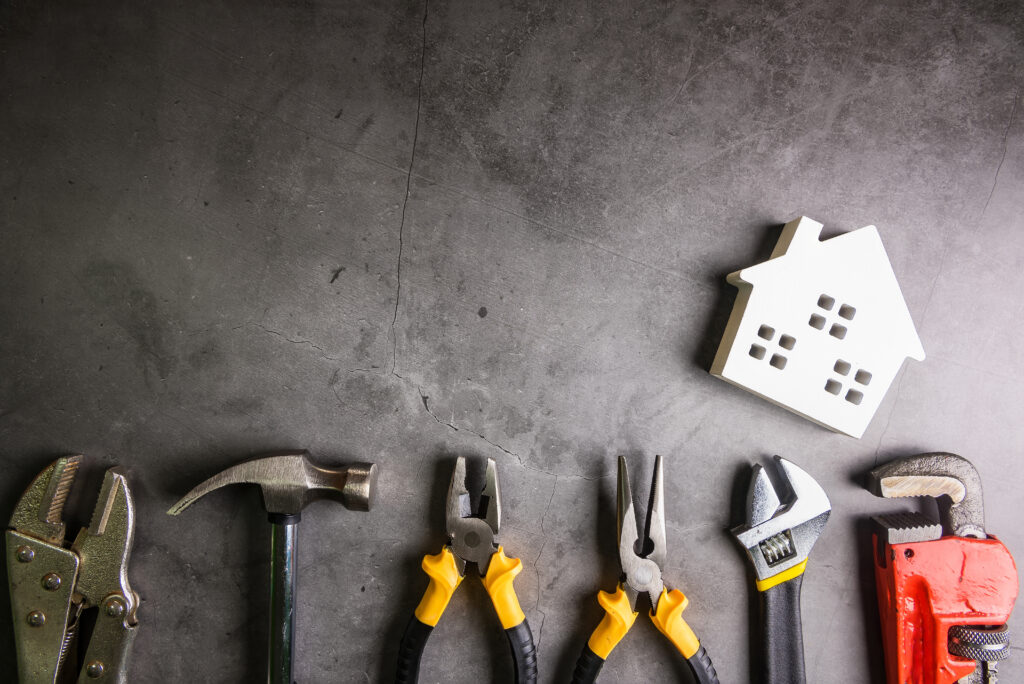When renting a property, both tenants and landlords have specific responsibilities when it comes to property maintenance. It’s not uncommon for confusion to arise over who should repair a broken appliance or address an issue like damp or mould. Understanding these responsibilities clearly can help prevent misunderstandings and ensure the property is well-maintained throughout the tenancy. In this article, we’ll explain the key responsibilities for both tenants and landlords, helping you to understand your obligations.

Understanding the Landlord’s Responsibilities
Landlords in the UK have certain legal obligations to ensure that their properties are safe, habitable and in a good condition. These obligations are primarily outlined in the Landlord and Tenant Act 1985, the Housing Act 2004 and various health and safety regulations. Here are the main areas landlords are responsible for:
1. Structural Repairs
The landlord is responsible for the structure and exterior of the property, including the roof, walls, windows, doors, drains and external pipes. If the property’s structural integrity is compromised due to wear and tear or unexpected damage, the landlord must repair or replace these elements.
2. Gas, Water and Electricity Supply
Maintaining and repairing the supply of gas, electricity and water is also the landlord’s duty. This includes ensuring that the heating system, electrical wiring and water pipes are all functioning properly and safely. Regular gas safety checks are required by law, and landlords must provide tenants with a valid gas safety certificate each year.
3. Plumbing and Sanitation
Landlords are responsible for maintaining plumbing systems, including sinks, toilets, baths and showers. If a leak occurs or a pipe becomes blocked, it is generally the landlord’s responsibility to resolve the issue, as long as the tenant didn’t cause the damage.
4. Heating and Hot Water Systems
Another critical duty for landlords is ensuring the heating and hot water systems are operational. If the boiler breaks down or the radiators stop working, it is the landlord’s responsibility to arrange repairs or replacements to restore the service.
5. Fire Safety
Landlords must ensure that the property meets fire safety regulations. This includes installing smoke alarms on each floor and carbon monoxide detectors in any room where solid fuel appliances, such as wood-burning stoves, are located. Landlords should also ensure that any furniture provided meets fire-resistant standards.
6. Common Areas
If the rental property is a flat within a larger building, the landlord or management company is usually responsible for the maintenance of common areas, such as staircases, hallways and gardens. This ensures that shared spaces are clean and safe for all residents.
7. Pest Control
While not always straightforward, landlords are often responsible for pest control if the infestation was present before the tenancy began or is caused by structural issues. However, if tenants’ actions, such as leaving food out or failing to dispose of rubbish properly, cause an infestation, they may be responsible for the cost of pest control services.
What Are the Tenant’s Responsibilities?
While landlords have a significant share of responsibilities when it comes to property maintenance, tenants also have obligations to keep the property in good condition. Tenants are generally responsible for ensuring they live in a way that does not cause damage or unnecessary wear and tear.
1. General Upkeep and Cleaning
Tenants must keep the property clean and in good condition. This includes regular cleaning, vacuuming and ensuring that waste is disposed of properly. Failing to keep the property in a reasonable state of cleanliness could lead to deductions from the security deposit at the end of the tenancy.
2. Minor Repairs and Maintenance
While landlords are responsible for major repairs, tenants are typically required to handle minor maintenance tasks, such as replacing lightbulbs, unblocking a sink or toilet and replacing smoke alarm batteries. These are considered reasonable tasks that a tenant would undertake as part of living in the property.
3. Reporting Repairs
Tenants are responsible for reporting any issues that require the landlord’s attention, such as leaks, faulty wiring or problems with the heating system. Failing to report these issues in a timely manner can lead to more significant damage, for which the tenant might be held partially responsible.
4. Damage Beyond Wear and Tear
Any damage caused by the tenant or their guests beyond normal wear and tear is the tenant’s responsibility to repair or pay for. This could include broken windows, damaged doors or holes in the walls. At the end of the tenancy, the landlord can make deductions from the deposit if the property is not left in the same condition as it was at the start, barring normal wear.
5. Gardening
If the property has a garden, tenants are usually responsible for its upkeep unless otherwise specified in the tenancy agreement. This may include mowing the lawn, weeding and trimming hedges. Landlords are generally responsible for more significant maintenance like tree surgery or landscaping.
6. Clearing Gutters
Ensure that drains, pipes, gutters, and channels on or around the property remain free from blockages. Tenants are responsible for avoiding common causes of clogs, such as pouring fat or grease down the sink, neglecting to clear hair from plugholes, and flushing inappropriate items like nappies, wet wipes (even those labelled “flushable”), or sanitary products down the toilet.
Areas of Overlap: What to Do if You’re Unsure?
There are some grey areas when it comes to property maintenance, where responsibilities may overlap or be ambiguous. For example, issues such as damp or mould can sometimes be difficult to assign responsibility for. If the damp is caused by a structural issue, such as a leaking roof or faulty guttering, it falls under the landlord’s responsibility. However, if it results from poor ventilation or a lack of heating due to tenant negligence, the tenant may be responsible.
It’s always a good idea to check the tenancy agreement, which should outline specific responsibilities for both parties. Communication is key, and if there’s ever any doubt, it’s best for tenants to report the issue to their landlord as soon as possible and discuss how it will be addressed.
The Importance of the Tenancy Agreement
The tenancy agreement is the key document that outlines the specific responsibilities of both landlord and tenant. While the law provides a general framework, the tenancy agreement will often contain additional clauses or specifications. For instance, it might state that the tenant is responsible for maintaining the garden or that the landlord will handle certain repairs within a specific time frame.
Both tenants and landlords should review the tenancy agreement carefully before signing to ensure there are no misunderstandings about maintenance responsibilities.
Property maintenance is a shared responsibility between landlords and tenants, with each party having a clear set of duties. Landlords are responsible for ensuring the property is structurally sound and safe, while tenants must take care of the day-to-day upkeep. By understanding these obligations, both parties can enjoy a smoother rental experience, avoiding unnecessary disputes and ensuring that the property remains in good condition.
If you’re looking for expert advice on property maintenance or need help navigating your responsibilities as a tenant or landlord, get in touch with Belvoir Tunbridge Wells today. We’re here to help both landlords and tenants understand their obligations, ensuring properties are well-maintained and compliant with all legal standards.










